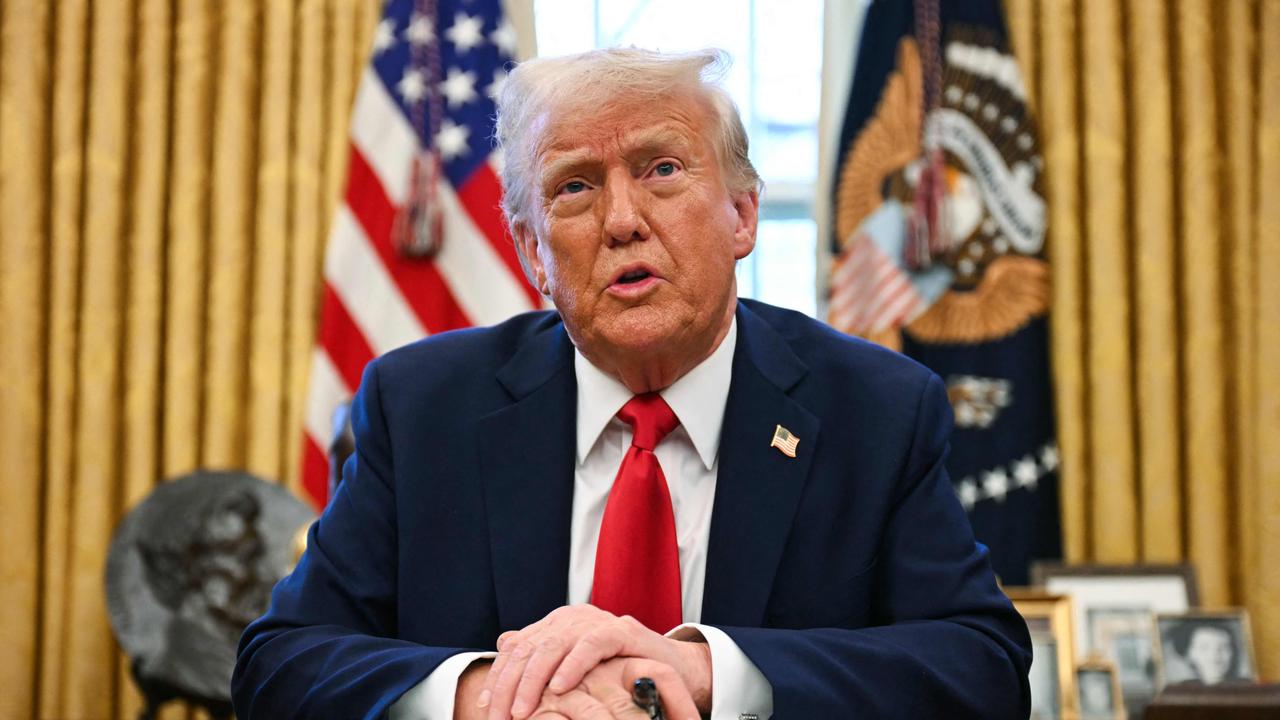Former US Secretary of State Colin Powell dies of Covid-19 complications, aged 84
Colin Powell, a US war hero, the first African-American secretary of state and a politician respected across the partisan divide, has died from complications after suffering Covid-19.
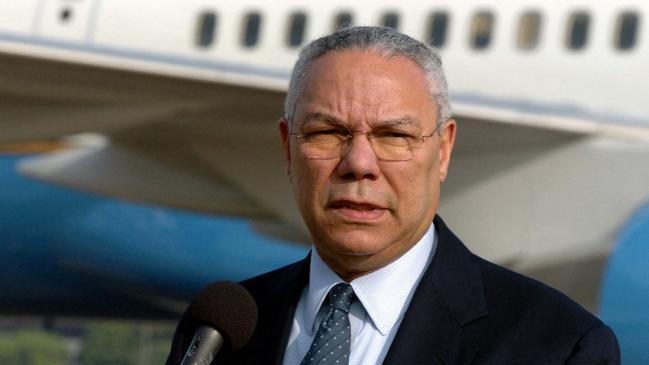
Colin Powell, who as a retired four-star general and former White House national security adviser went on to serve as the first Black secretary of state, has died at 84.
His family cited Covid-19 complications in a statement on Facebook.
The statement said Mr Powell died Monday, and that he had been fully vaccinated. The statement thanked physicians and staff members at Walter Reed National Military Medical Center for the treatment he received there.
Mr Powell had been undergoing treatment for a type of blood cancer, said his longtime aide, Peggy Cifrino. “He was being treated successfully for multiple myeloma for the past few years,” she said. That type of cancer is known to weaken the immune system.
Former President George W. Bush, who appointed Mr Powell to the State Department post, praised him in a statement that cited his lengthy record of public service beginning as a soldier during the war in Vietnam.
“Many Presidents relied on General Powell’s counsel and experience,” Mr Bush said. “He was such a favourite of Presidents that he earned the Presidential Medal of Freedom — twice.”
Defence Secretary Lloyd Austin, who was travelling in Tbilisi, Georgia, remembered Mr Powell Monday as “a man who was respected around the globe.”
“Quite frankly, it is not possible to replace a Colin Powell,” Mr Austin said. “We will miss him.”
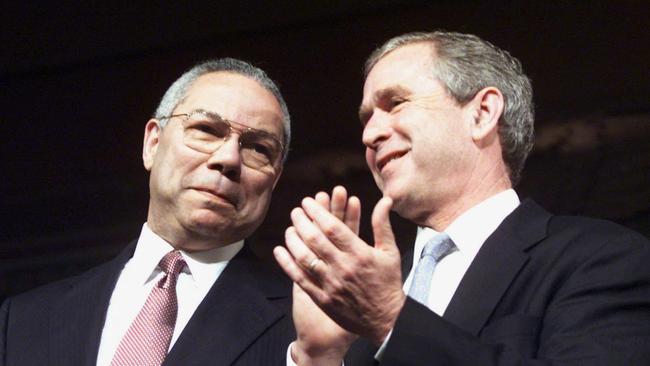
Mr Powell’s views on military conflict shaped a national security outlook that advocated against precipitous war and was popularised in the media as the “Powell Doctrine.” It was born of his experience in Vietnam and held that war should be a last resort, with clear objectives, strong public support and decisive action.
The philosophy served him well during the Persian Gulf War in 1991, during the George H.W. Bush administration, when as chairman of the Joint Chiefs of Staff, he had a central role overseeing Operations Desert Shield and Desert Storm. The use of overwhelming US military force led quickly to victory over Iraqi forces, with few American casualties.
Later, in Bosnia, then Gen. Powell opposed a US intervention to stop the ethnic cleansing carried out by the Serbs.
“As soon as they tell me it is limited, it means they do not care whether you achieve a result or not. As soon as they tell me ‘surgical,’ I head for the bunker,” he told the New York Times in 1992.
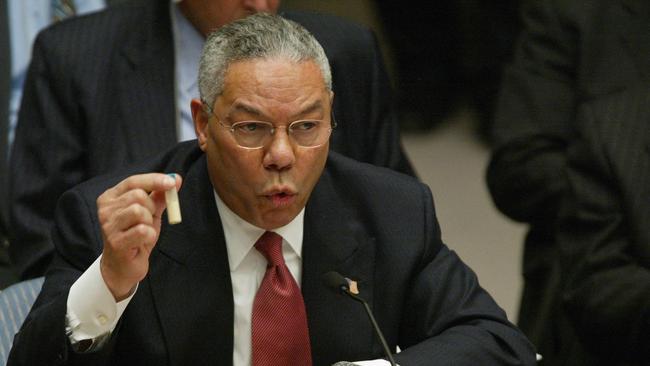
The Clinton administration eventually intervened in 1995, following the Srebrenica massacre.
The Powell Doctrine, which was written into the US National Security Strategy issued in 1992, would face its biggest test 10 years later, as the US contemplated an invasion of Iraq and then-Secretary of State Powell faced a fateful moment.
He left the State Department in 2005, two years after the start of the Iraq war, capping a career that began in the Army after his graduation from college in 1958.
Mr Powell served two tours in Vietnam that shaped his 35 years of service in the US military. He was wounded twice, falling into a bamboo trap during the first tour, causing a poisoned spike to go through his foot.
During his second tour, he survived a helicopter crash. He was awarded the Soldier’s Medal for repeatedly returning to the burning helicopter to rescue others, including Maj. Gen. Charles Gettys, in 1968.
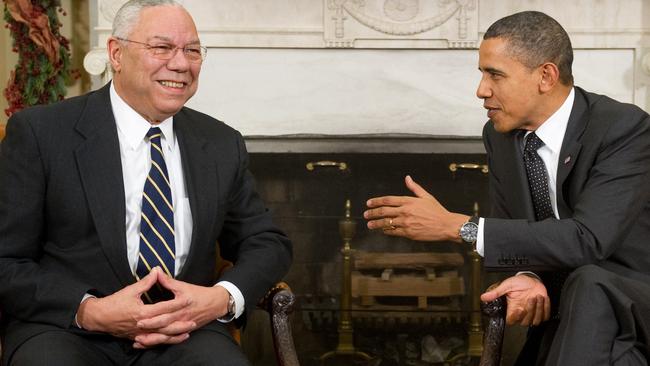
But the tour wasn’t without controversy. Mr Powell arrived in Vietnam a little over three months after one of the units in his battalion massacred hundreds of Vietnamese civilians in the hamlet of My Lai.
While Mr Powell staunchly believed in US aims, critics accused him of helping to whitewash US conduct during an initial investigation into the killings, a probe in which he took part.
In the first of his two memoirs, Mr Powell reflected on the failings of the Vietnam War years, looking back critically at himself and writing: “A corrosive careerism had infected the Army; and I was part of it.”
Mr Powell rapidly rose through the military ranks in the years following his Vietnam experience, and he served as senior military assistant to Secretary of Defence Caspar Weinberger from 1983 to 1986.
During that time, he arranged for a shipment of TOW missiles to be transferred from the Army to the Central Intelligence Agency. The CIA sold the missiles to Iran and used the proceeds to fund rebels fighting the Sandinista government in Nicaragua.
Mr Powell later was cleared of a role in what became known as the Iran-Contra affair, going on to serve as White House national security adviser during President Reagan’s final year in office.
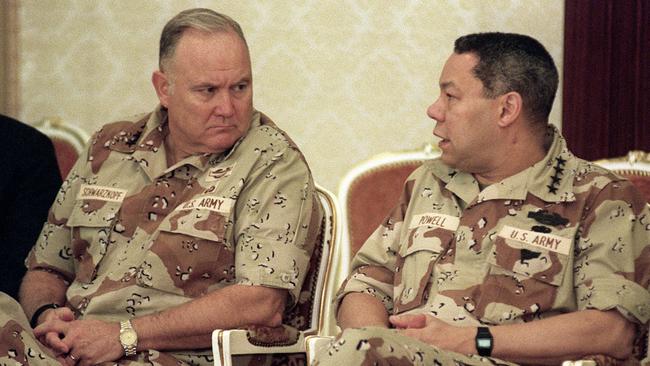
In 1989, he was appointed chairman of the Joint Chiefs by President George H.W. Bush. At 52 years old, he was the youngest officer to hold the position before or since, as well as the first Black officer to serve in the post.
As chairman, Mr Powell oversaw more than two dozen US military operational deployments and won support for a reorientation of US strategy after the fall of the Soviet Union, including a 25% reduction in the size of the armed forces. He retired from the military in 1993.
He helped launch and chaired the children’s advocacy group America’s Promise, then returned to his last stretch of government service as Secretary of State from 2001 to 2005 during President George W. Bush’s administration.
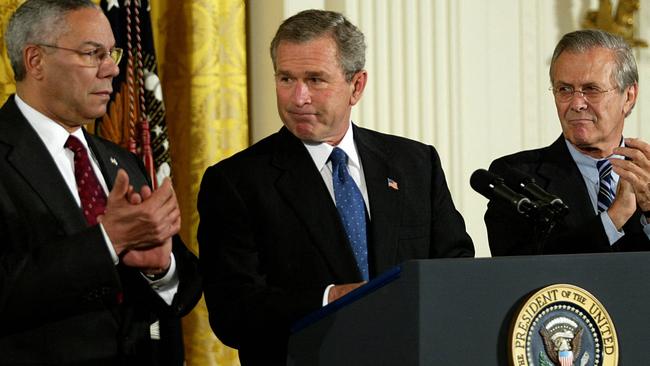
As secretary, he was known for travelling less than any predecessor in 30 years. He argued that his role was to manage the department and advise the president, and he believed that ambassadors and locally based staff should take more responsibility.
Mr Powell made prolific use of the phone, making some 1,500 calls to foreign officials in the first two years after the Sept. 11 attacks. He advocated for a strong and rapid response against al Qaeda and demanded co-operation from Afghanistan and Pakistan.
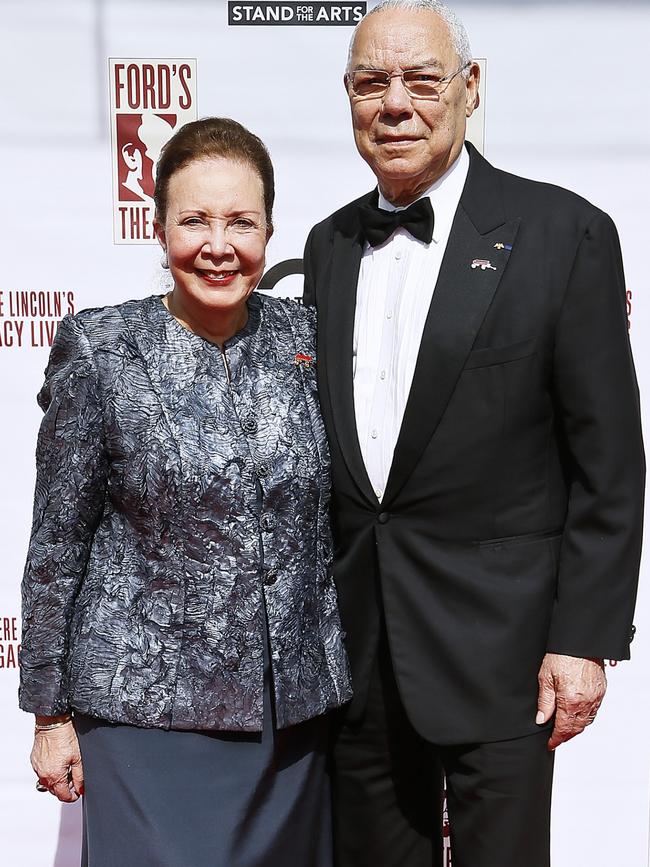
He initially opposed the invasion of Iraq in 2003 and came to deeply regret his role building a case for it at the UN Security Council.
“There can be no doubt that Saddam Hussein has biological weapons and the capability to rapidly produce more, many more,” he told the security council. The intelligence he cited turned out to be wrong.
According to the biography “Soldier: The Life of Colin Powell,” by Karen DeYoung, his wife Alma felt a sense of foreboding about the presentation and worried that defending the White House would cost him his reputation with the public.
Later, Mr Powell said the White House had given him a 48-page document ahead of the event, and barely a week to go through the intelligence. He called the speech a “blot” on his record.
Mr Powell left the administration after Mr Bush’s re-election and became an early critic of the US handling of the war on terror, backing senators who opposed a proposal to set up trials for alleged foreign terrorists.
“The world is beginning to doubt the moral basis of our fight against terrorism,” Mr Powell wrote to Sen. John McCain (R., Ariz.) in 2006, in a letter that warned the new legislation would endanger US troops overseas.
After retiring, Mr Powell toured the country, held speaking engagements and kept a low profile when social media and rising populism up-ended the US political order.
Mr Powell was seen as a moderate Republican, but backed Barack Obama in 2008 and 2012.
He criticised then President Donald Trump openly for his handling in June 2020 of protests over the killing of George Floyd, an unarmed Black man, by Minneapolis police. And he endorsed Joe Biden for president.
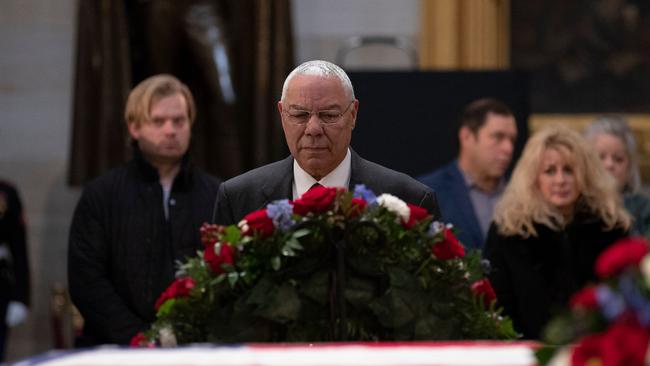
Mr Powell was born on April 5, 1937, to immigrant Jamaican parents, and spent his early years in Harlem.
The family moved to the Bronx when he was 6. Mr Powell’s childhood revolved around feasts of plantain and roast goat, rice and peas, and calypso melodies.
Decades later, as the highest ranking US uniformed military officer, he played calypso music in his office, secretly delighting in the knowledge that aides didn’t understand the words and missed the innuendo in “The Big Bamboo” and “Water De Garden.”
Never a sports enthusiast as a youngster, Mr Powell enrolled in ROTCwhile in college, inspired by the stories he had heard of World War II and the Korean War.
Mr Powell joined the Army before the passage of the 1964 Civil Rights Act outlawing racial discrimination. Even as an Army officer, there were restaurants he couldn’t go into and motels he couldn’t stay at because he was Black. The Army had integrated, but racial tensions remained in the ranks.
Mr Powell met his wife, Alma, on a blind date as a young lieutenant in 1961, and they married nine months later, before his first deployment to Vietnam. Mr Powell is survived by his wife and three children, Michael, Linda and Anne Marie.
The Wall St Journal

